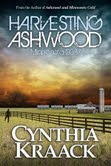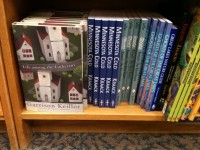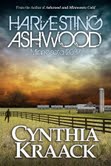You’ve been asked to do a reading. Start your thinking with these realities:
- Some writers would rather paint walls than read their work out loud to an audience. Some authors are so enamored with their own words that they tend
 to forget an audience exists.
to forget an audience exists. - Some adults love to close their eyes and sink into the sound of another person reading out loud.
- Some adults close their eyes while another adult reads out loud because the whole experience is a bit uncomfortable.
Even the most polished reader performer needs to think carefully about the opportunity and ask a few questions:
- Who will be in the audience?
- What is the occasion?
- What are the facilities like?
- How many minutes have been designated?
- Are there any special requests?
The occasion, audience, and setting really define the structure of a reading. Asking questions helps build a relationship with your host. A bookstore owner might like you to sit on a chair on a platform, to stand without a stand for your book, to use a microphone or not use a microphone, to keep the presentation to twenty minutes or to use a half hour followed by an open discussion. You’ll feel more comfortable and do better if you’re not surprised by the requirements of the store’s space.
An invitation can be ambiguous. For example, I was invited to present to a group of retired school teachers. The program committee debated whether their group would be more interested in the writing and publishing process with a short reading or would the speculative genre be a topic that intrigued the luncheon group with time for questions? Their final decision was delightful—as a group of teachers they had spent years reading to others and wanted to be entertained by a half hour reading with a short question and answer period.
Once you know the facts, you can better prepare your materials. Doing a reading is a great opportunity to market your book. It is an even better opportunity to market yourself as a writer. Adults who might squirm while you read will engage if you talk about your writing—why you wrote this book, what you learned while writing it, humorous stories about your characters or your family’s response to the story. They want to hear more about you and why they should consider spending the time and money to read your book.
This is about entertainment. People could be doing other activities if they weren’t in a chair facing you. If you have a half hour, divide the time into talking and reading. Maybe you spend time setting up the book. You could talk about the main characters and a few quirky details about each then follow that up with reading an excerpt to support what you shared. You might talk about your experience biking to work in the city then read an interesting or humorous segment. If you have the right audience, you might read a tender-hearted segment that touches their emotions. Just remember: balance talking and reading.
Practice, both your comments and your book segment:
- Be sure you have control of your timing. The audience is trusting you will respect their time and keep them engaged. A reading that ends five minutes early is far better than extending ten minutes long. If they want an encore, be prepared.
- Control your voice. Mix up your volume and tempo. Listeners should be able to tell there are two characters speaking in a segment. Read out to the audience, not to your book. Tape your practices and have a good friend give you constructive feedback. No mumbling, droning or yelling allowed. Think about listening to drive time radio or play by play commentators or a newscast. An audience needs your verbal clues to know how to respond to the material. You can be dramatic when you read. Surprise your readers.
- Relax your body and look at the friendly people who have gathered. Small groups allow for individual eye contact and interesting two way conversations. Be personable. Just as in public speaking, keep your hands out of your pockets and avoid any annoying habits like pushing that one strand of hair behind your ear over and over.
- While many writers prefer to read from manuscripts because they can increase font size and insert prompts or pauses, others have strong feelings that you lose a valuable marketing opportunity by not holding the actual book. If you use a printed manuscript, you might insert it in a binder and paste a copy of the book cover on the side facing the audience. You could also bring along a book holder and stand one on the podium or table.
Enjoy the discussion time. There are few better ways to collect readers’ reactions than to hear from them. In fact, enjoy the entire opportunity. Take a bow. You’re a writer that people want to meet. If you want a different perspective, read the Toastmasters International advice on book reading.













 During AWP 2012 blogging was all the buzz. Poets presented blogs that featured party pictures and new works, bookstores talked about blogs connecting them to their customers, publishers emphasized that writers had to have presence to attract an audience.
During AWP 2012 blogging was all the buzz. Poets presented blogs that featured party pictures and new works, bookstores talked about blogs connecting them to their customers, publishers emphasized that writers had to have presence to attract an audience.


 A publicist with a national small press based in Minneapolis stunned the
A publicist with a national small press based in Minneapolis stunned the